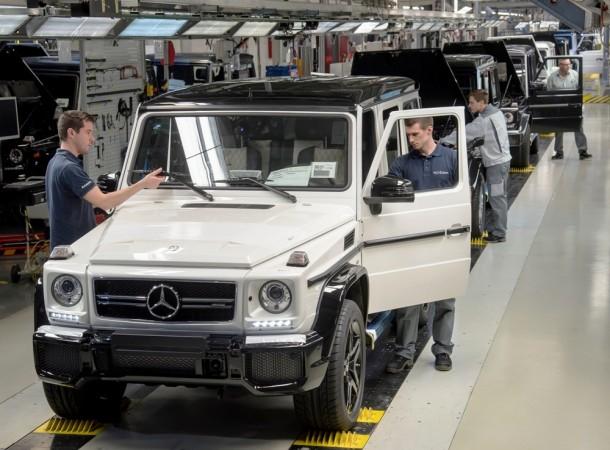
The competition between German carmakers Audi, BMW and Mercedes-Benz for the luxury car market is one of the most intensive races in the automobile world. In 2016, the 11-old success run of BMW came to an end, as Mercedes-Benz secured the numero uno position in the race.
Also read: Rolls-Royce registers second highest car sales in its 113-year history
Mercedes-Benz sold 20,83,888 units of its vehicles all over the world to reach the top spot, a position BMW has been set on since 2005. BMW found 20,03,359 takers last year, while German car maker Audi's stood at the third position with 18,71,350 units.
Mercedes-Benz also registered 11.3 percent growth in 2016 against 18,71,511 units sales in 2015. For 2016, Mercedes-Benz was the best-selling premium brand in countries such as Germany, Italy, Portugal, Japan, South Korea, Australia, Taiwan, USA and Canada.
Europe was the biggest sales region of Mercedes-Benz in 2016. With strong sales of the E-Class and the SUVs, Mercedes-Benz sold nearly 900,000 vehicles in Europe registering a growth of 12.4 percent. Demand in the Asia-Pacific region was higher than ever in the year 2016 with 19.3 percent growth. China was once again the biggest individual market for Mercedes-Benz. The C-Class was once again the best selling model of the company in 2016, selling approximately 425,000 units of both sedan and estate versions.
The BMW Group that consists of sub brands such as Mini, Rolls-Royce Motor Cars and BMW Motorrad, apart from the core brand, sold a total of 23,67,603 vehicles registering 5.3 percent growth. It is the best ever sales of BMW Group and the sixth year in a row that the company has set a new sales record.
The core brand BMW alone increased the sales by over 5.2 percent compared to the previous year. The increasing trend towards SUVs around the world has been reflected in the BMW sales as one in three BMWs sold was from an X family SUV. A total of 644,992 BMW X models were delivered in 2016, an increase of 22.3 percent compared to 2015.
Audi has increased its sales to 18,71,350 units in 2016, with 3.8 percent growth over the previous record-breaking year 2015. The demand for Audi cars has increased for the seventh year in a row since 2009. Compared to the 949,729 customers in 2009, the company almost doubled its market by the end of 2016.












!['Had denied Housefull franchise as they wanted me to wear a bikini': Tia Bajpai on turning down bold scripts [Exclusive]](https://data1.ibtimes.co.in/en/full/806605/had-denied-housefull-franchise-they-wanted-me-wear-bikini-tia-bajpai-turning-down-bold.png?w=220&h=138)
![Nayanthara and Dhanush ignore each other as they attend wedding amid feud over Nayanthara's Netflix documentary row [Watch]](https://data1.ibtimes.co.in/en/full/806599/nayanthara-dhanush-ignore-each-other-they-attend-wedding-amid-feud-over-nayantharas-netflix.jpg?w=220&h=138)



![India Auto Roundup: Maruti Suzuki, Mahindra have exciting launches in November [details here]](https://data1.ibtimes.co.in/en/full/805520/india-auto-roundup-maruti-suzuki-mahindra-have-exciting-launches-november-details-here.jpg?w=220&h=135)